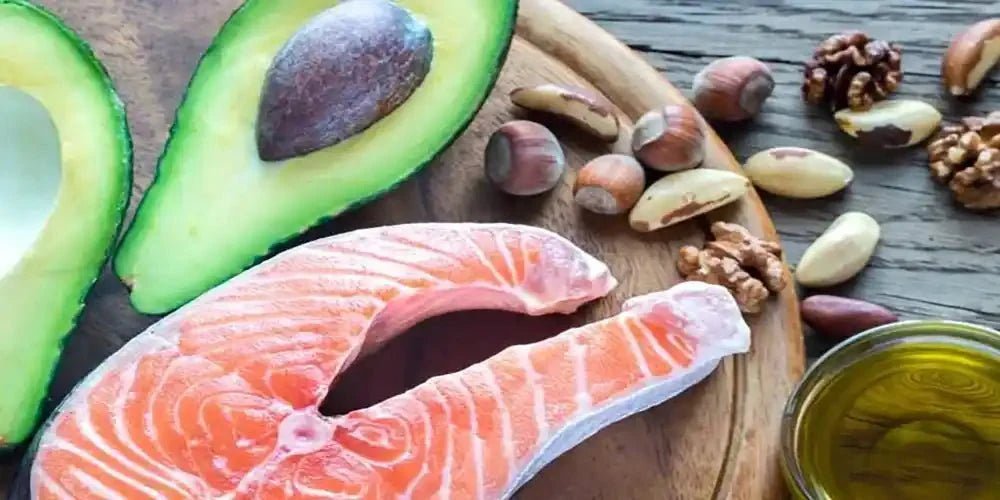
Fat is good for you. Fat is bad for you. No wait some fat is good and some is bad. Low/no fat is best. What…. butter is now good and margarine is bad? Please help stop this insanity!
Let’s look at fat through the lens of factual science to see where the science and current recommendations have landed so that you can incorporate fat into your diet to help you reach your performance goals.
History
Dietary fat is a critically important component of a healthy diet, yet it has sometimes been wrongly vilified for negative impacts on health. As the science of fat has developed over the past couple of decades, fats have both fallen in and fallen out of favour with respect to its role in a healthy diet. We now know that fat is not as bad as some once thought. Naturally occurring fats have vital roles in normal physiology, and without enough of them our bodies are not able to function properly. As with anything in our diet, when consuming fats we just need to be mindful of how much we are regularly consuming as well as which types of fat are in our foods.
Fat- The basics
Fats, one of the 3 macronutrients in our diet, provide 9 calories of energy per gram. That is over twice the amount of calories of carbohydrates and proteins which each have 4 calories per gram. Fat serves as a concentrated form of energy and is also a required component of many physiological processes including absorption of the fat soluble vitamins (A, D, E, & K), supporting mental function and joint health, healthy hair and skin, and as a structural component of hormones and cells.
Types of dietary fats
There are three types of fats found naturally in the foods that we eat: saturated, monounsaturated, and polyunsaturated. Trans fats, a fourth type of fat in our diet, result from the chemical hydrogenation of fats during cooking.
Saturated fats are typically solid at room temperature. Think of the wonderful fat marbling in a steak, whole fat dairy products like butter, and tropical oils (coconut, palm). These fats often get a bad rap for their link to raising total and LDL cholesterol in the blood. While too much saturated fat in your diet may not be ideal you do need some. Most dietary recommendations suggest consuming between 7-10% of your total daily calories from saturated fat.
Both types of unsaturated fats, monounsaturated and polyunsaturated, tend to be liquid at room temperature and come with many health benefits. These fats are found in many vegetable oils, nuts, seeds, avocados and fish. Monounsaturated fats have been shown to help raise HDL (“good”) cholesterol and lower LDL (“bad”) cholesterol. Polyunsaturated fats like omega-6s and omega-3s play critical roles in supporting brain function and normal growth & development of the body.
As mentioned above, trans fats are created when dietary fats are chemically processed. Consumption of trans fats has been associated with an increased risk of cardiovascular disease. If you are wondering how to tell if your food has trans fat in it look at the food label. Trans fats are listed as partially hydrogenated oil in the ingredient list.
Fat’s role performance
Now that you have the basics on fat, let’s discuss the role of fat in performance. With 9 calories per gram, fat is an excellent source of energy to help fuel performance. In fact, during low to moderate intensity exercise the body primarily uses fats to fuel the muscle. Depending on your performance goals, you should consider including sources of unsaturated fats like nuts, seeds, fatty fish, and vegetable oils to promote optimal health and performance. And if you enjoy a fatty steak once in a while, then go for it! Not only will you get a good dose of protein you will also get some of the saturated fats that are often left out.
Verdict?
Dietary fats are crucial for normal functioning of the body and key to helping our bodies perform at their optimal levels. Fat is important for joint and mental health, as well as critical for absorption of the fat soluble vitamins which also play a significant role in performance. Dietary fats can easily fit in your nutrition plan! Add avocado to your toast, snack on a handful of almonds, or sauté your veggies in olive oil! Just remember—everything in moderation! Moderation is key when it comes to fats.


Share:
Understanding the Basics of Muscle Recovery
Understanding Pre-Workout Supplements